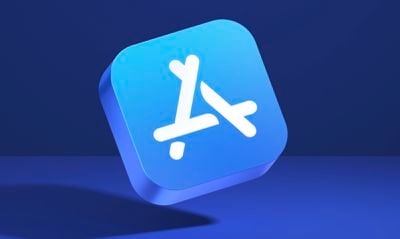Apple today informed developers of "reader" apps that they are able to sign up for access to an "External Link Account Entitlement" that will allow the app to offer a link to a website so users can create or manage an account outside of the App Store.

Reader apps are able to link to a website that is owned or maintained by the developer for account signups. So, for example, an app like Netflix can provide an in-app link that goes directly to the Netflix website for account signups, something that was not allowed before the change. Apple updated its App Store guidelines to reflect the change.
Apps may allow a user to access previously purchased content or content subscriptions (specifically: magazines, newspapers, books, audio, music, and video). Reader apps may offer account creation for free tiers, and account management functionality for existing customers. Reader app developers may apply for the External Link Account Entitlement to provide an informational link in their app to a web site the developer owns or maintains responsibility for in order to create or manage an account. Learn more about the External Link Account Entitlement.
Apple considers reader apps to be those that provide digital content that includes magazines, newspapers, books, audio, music, or video as the primary functionality of the app. Apple made this change to reader apps in order to settle an investigation launched by the Japanese Fair Trade Commission.
According to Apple, reader apps do not offer in-app digital goods and services for purchase and are primarily aimed at allowing users to browse previously purchased content or content subscriptions, which is why Apple agreed to allow apps share a single link for account management purposes.
Apps that use the External Link Account Entitlement must provide reader content, must not offer in-app purchases, and must not offer real-time, person-to-person services. Apps that allow people to access digital content like music or video, but not as the primary functionality, such a social networking apps, are not considered reader apps.
When announcing the change in September, Apple said that it would update its App Store guidelines and review process to "make sure users of reader apps continue to have a safe experience on the App Store." Apple plans to help developers of reader apps "protect users when they link to an external website to make purchases."
The reader app change will affect many of Apple's biggest competitors, including Spotify, Netflix, Hulu, and more, with the change applicable to all reader apps globally.




















